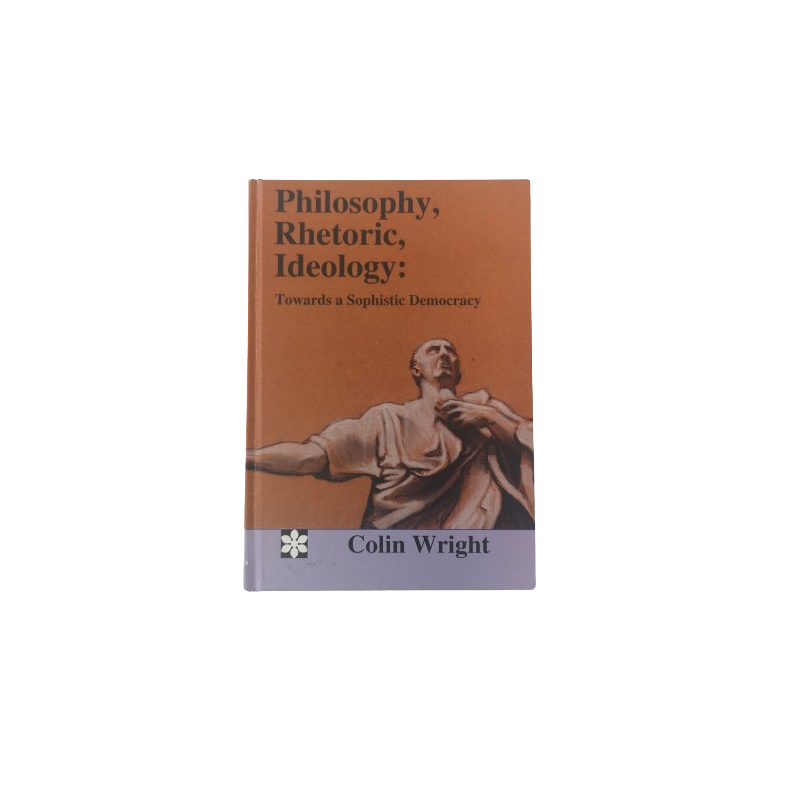



Colin Wright
2006; 220 pp; 21 cm
Hardback ISBN: 1-877407-10-0
"Philosophy, Rhetoric, Ideology: Towards a Sophistic Democracy" delves into the tumultuous dance between rhetoric and philosophy, tracing the resurgence of the Sophist's shadow in modern thought. This provocative exploration examines how the ancient rivalry shapes today's philosophical discourse, literature, and political narratives, proposing a bold vision of a 'sophistic democracy' that reimagines the fabric of global political engagement.
Rhetoric and philosophy have always been uncomfortable bedfellows, yet each is arguably defined by the history of its mutual antagonisms and uneasy alliances with the other. Since the 1960s, a new configuration of this relationship has arisen with the so-called ‘rhetorical turn’, consisting in a broad interdisciplinary sympathy for a rhetorical view of language in which language is epistemologically determinant of ‘truth’, and social construction is viewed as intrinsically discursive. But to which tradition of rhetorical theory does this turn appeal, and what are its ideological and political implications? Philosophy, Rhetoric, Ideology: Towards a Sophistic Democracy explores the ideological impact of classical and renaissance rhetorical theory on the discourses of philosophy, literature and politics. It traces in each of these genres the fate of the figure that condenses and dramatises the intense rivalry between rhetoric and philosophy: the Sophist. Much maligned since Plato, the exclusion of the Sophist, as a figure of anti-philosophy, has long been constitutive of philosophy itself - at least until Nietzche’s essentially sophistic intervention into metaphysics, so influential for today’s poststructural and postmodern tendencies. However, it is argued here that there is, and always has been, a necessary structural play between what the French philosopher Barbara Cassin calls the ‘sophistic effect’, and the kind of ‘philosophical rhetoric’ that Plato came to advocate. By laying bare the specific ways in which this mutually constitutive antagonism is regulated in philosophy, literature and politics, the interlocking ideologies of these three disciplines are revealed as ideologies of Being, of Aesthetics, and of Representation respectively. Finally, it is argued that, since Plato’s originary expulsion of the Sophists from his Republic was, in part, a reaction to the ancient Athenian democracy, reintroducing sophism into the practice of political rhetoric today might enable the conception of a contemporary sophistic democracy more suited to an emerging global demos.
You might also like